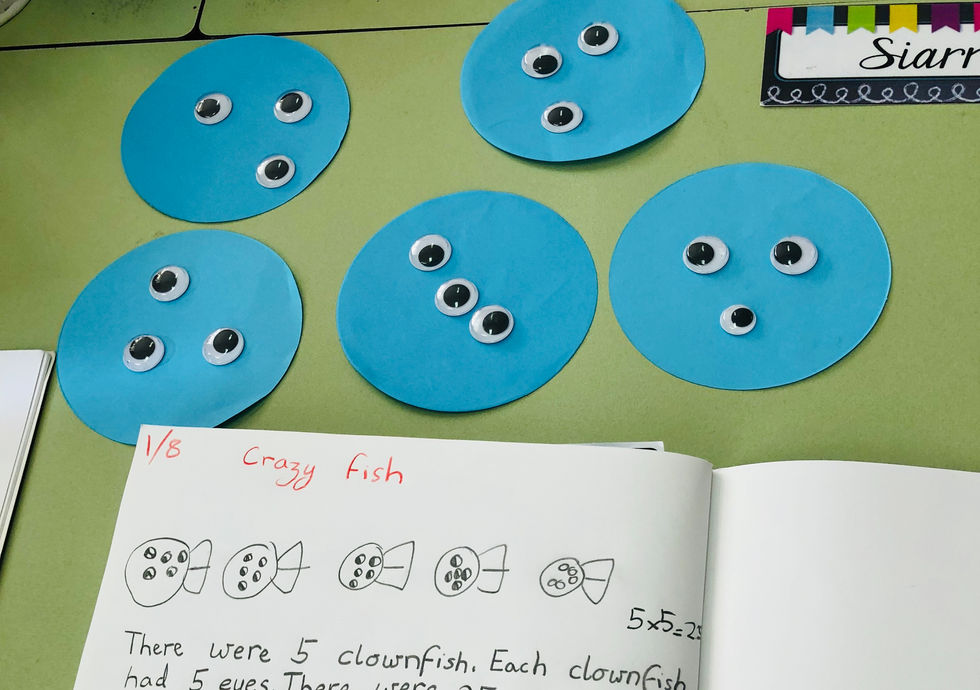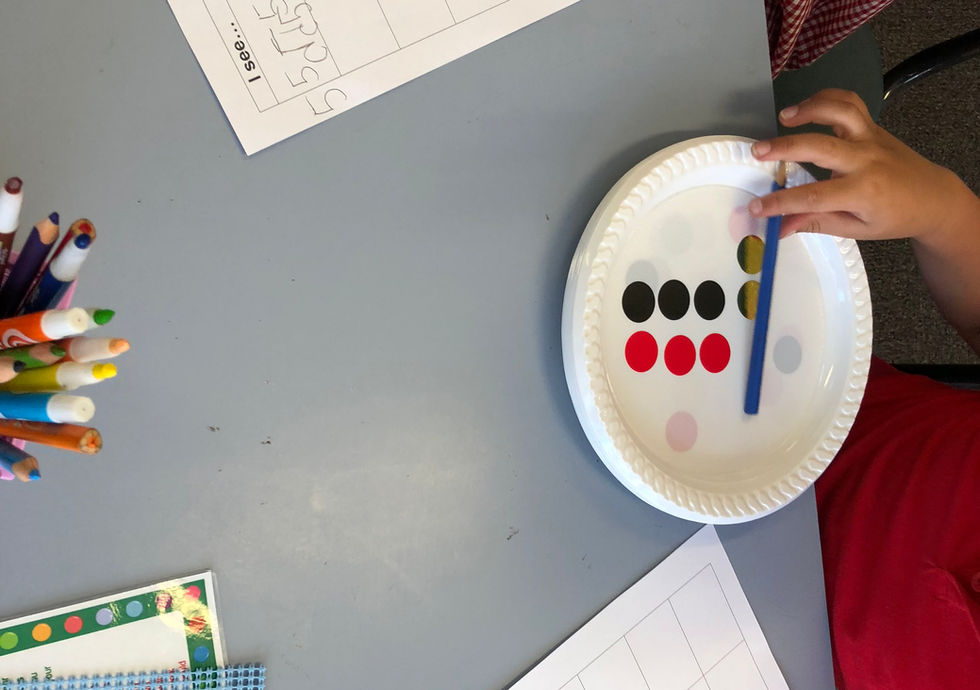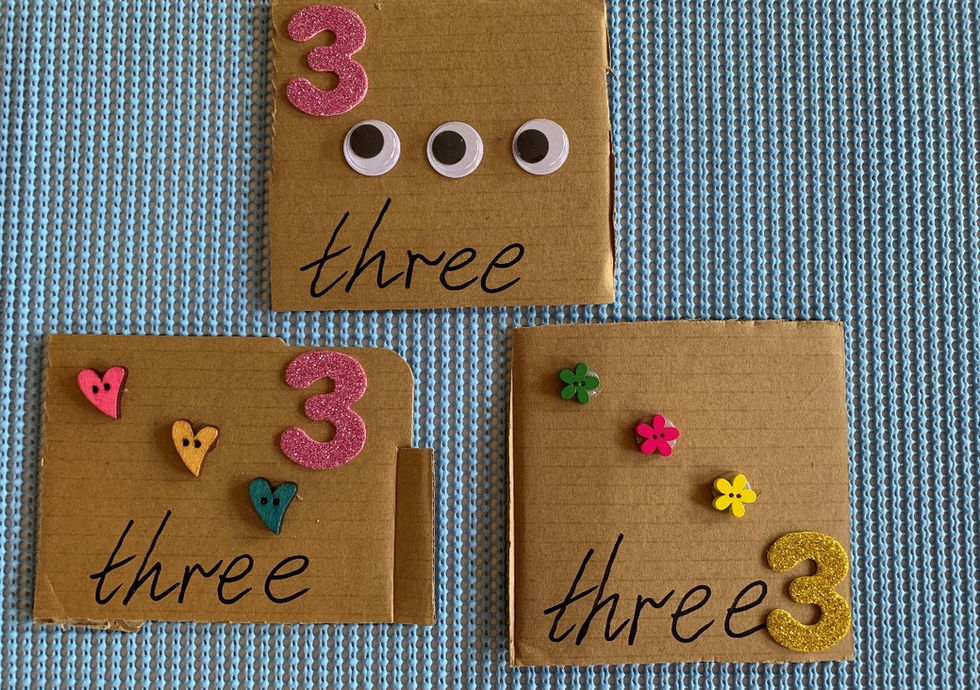
Become the maths teacher you wish you'd had when you first started primary school...
50 sequential early years units, including 500 hands-on, engaging, explicitly modelled tasks with built-in extension and support for ongoing pre-planned differentiation within each and every session
50 Sequential Units - sample packs for every curriculum and syllabus across Australia
9 of the 500 sequential hands-on lessons
Sample Pack for Victorian Curriculum
Version 2.0 and
VTLM 2.0
Updated in 2025 - Directly linked to Vic 2.0 content, levels and outcomes, as well as VTLM 2.0.
Used by hundreds of Victorian schools for Foundation to Year 2, as well as intervention needs and ongoing in-class support across Years 3-6 and specialist settings.
Sample Pack for the new Australian Curriculum Version 9 including QLD,
the NT, ACT, SA
and Tasmania
Note that Australian Curriculum V9 is also identical to the curriculum used across South Australia, with the addition of the 'dispositions' element for schools in SA.
Sample Pack for the New
Western Australian
Curriculum for 2026
Updated now that SCSA has released the final version, ready for implementation from Term 1 2026 onwards.
Used by schools across Perth, Kalgoorlie, Karratha, Esperance, Bunbury, Denmark, ESCs across WA and remote community schools.
Sample Pack for the new NSW Syllabus
for K-2
Updated to the new NSW Syllabus for
Early Stage 1 and Stage 1, with tried-and-tested units that provide comprehensive planning support with more high-impact scope and sequences that work for K-2.
Please note: Many of the hyperlinks in these documents, particularly to the linked
templates, will not work until schools have access to the complete package.
Please note: Excerpts only - Within the pack, all lessons are organised units by concept and level/stage, with 10-25 lessons to master one concept at a time.
Contents and Pedagogy Overviews
Pedagogy of the Units
Contents of the Pack
Our numeracy leaders know that teachers have extremely limited time constraints - because we are teachers too. Accordingly, our Early Years Mathematics Package ensures that your teams have everything teachers need at their fingertips to deliver three years of sequential, explicit teaching, engaging learning experiences that prioritise hands-on mathematics, mental strategies, growing confident mathematicians and all four proficiencies.
Helping students learn and love maths from the very first day of school up to year 3 with sequential hands-on units for every critical skill throughout the early years. Pack inclusions:
Created by Australian numeracy coaches and experienced primary teachers in early years classrooms - Comprehensive units to assist teachers and teams to plan with thorough step-by-step modelling of sequential lessons that use concrete materials to teach maths. - The complete package includes over 2000 pages of new explicit teaching lessons and rich multiple-entry-point (low-floor, high-ceiling) tasks that all involve engaging hands-on maths (no worksheets and no click technologies). - All units use photographs of numeracy coaches modelling with materials, lessons in action in real classrooms and detailed student work samples. These visual examples comprehensively support teachers to deliver materials-based mathematics instruction with confidence. In particular, the photographs provide teams with an in-depth insight into how to model critical numeracy concepts with materials, including questioning prompts and immediate feedback tips, as well as misconception alerts and how to address these. Support, mid-range and extension student work samples also illustrate examples of what excellent work looks like for each lesson.
Extending and enabling prompts for daily in-class extension and intervention - Each lesson includes extension planning through a series of extending prompts for advanced students who crave an extra challenge. This includes one, two or three pre-planned ways to increase the challenge level of each task. - The first extending prompt also caters for mid-range students who show confidence and achieve the first level of each learning intention. This enables teachers to regularly and flexibly provide in-class extension. - Scaffolded enabling prompts support students with developmental gaps through in-class intervention. This includes modified recording templates and visual aids that remove literacy and working memory barriers from maths sessions. Support variations often adapt the task to target critical skills first, such as subitising and partitioning.
Direct alignment to Australian and all state curriculums, learning intentions for each session and ongoing professional learning that is immediately relevant to the classroom that day: - Direct links to the Australian Curriculum Version 9, the new (2026) Western Australian Curriculum, new Victorian Curriculum Version 2.0 and new NSW Maths Syllabus for K-2 are detailed at the start of each unit. - Hyperlinked tables of contents at the start of each unit plan ensure teachers can navigate with speed and ease, providing an 'at-a-glance' overview of all lessons. - Learning intentions and key maths vocabulary are highlighted at the start of each lesson. These translate learning goals into student-friendly language and create a consistent maths language across all early years teams. - Implementation support pack, including a step-by-step PowerPoint that provides easy-to-follow, practical tips for teachers of all confidence levels. - Ongoing professional learning is provided through teaching tips and professional reading summaries at the start of each unit, providing hundreds of focused mini-PLs just in advance of teaching each concept – precisely when this professional learning will produce the most impact. - Misconception alerts are highlighted within each unit and lessons at relevant points, in addition to photographs of numeracy coaches modelling with concrete materials in classrooms, questioning prompts and immediate feedback dialogue within every session. - All student recording templates and lesson templates are hyperlinked within the lesson plans, and easily organised into each unit’s folder, ready to print and use for students to record their thinking and their working out alongside the materials.
Warm-ups and engaging hooks - Engaging hooks launch every lesson by igniting students' love and excitement for maths, authentically linking the content to students' interests and lives. Tune-ins include YouTube clips, numeracy picture books, sets of images and real-life information that connects the maths of the lesson to the real world. Our sequential units have been created by veteran teachers with decades of experience in delivering that content to early years students. With the combination of real-life links and the consistent use of materials, we regularly receive feedback (and have seen it ourselves in our classrooms) that students start to genuinely love maths and look forward to it every day (with cheers replacing groans at the start of maths). Maths becomes a favourite subject, akin to P.E. and art, and for most students, not the minority. - There are over 100 warm-up games, integrated into the units, specifically focusing on each skill. Warm-ups front-load challenging concepts, develop number talks and mental maths strategies, and space-retrieve previous developmental steps to build fluency.
Diagnostic growth-mindset assessments that require students to reason, use strategies and show their mathematical thinking (not just click a box): - Diagnostic assessments that are user-friendly for the early years emphasise that students must show their strategies and mathematical thinking. Formula-driven spreadsheets then make data immediately actionable for teams, by linking the highlighted points-of-need for their students directly back to the hands-on unit plans, providing multiple lesson options to target each gap and next learning goal. - Post-assessments automatically calculate growth and focus students on a growth-mindset, rather than raw scores, then can be used to further focus teaching and warm-ups. The package also includes a new one-to-one maths interview as a diagnostic assessment for entry to the first year of school, developed to provide practical and immediately usable data to target teaching, see and track growth throughout the year. - Formative assessments are integrated into the units, including regular exit tickets, cross-check templates with progressive learning goals and success criteria all pre-filled for every level and developmental step. - Critical checkpoints and strategy staircases, developed in our pilot schools, focus each team on their year level’s big developmental steps and numeracy goals, forming a powerful sequence of learning. An easy-to-follow scope and sequence also guides teams as to the recommended timings for each unit, providing more time for student practice and mastery of the big ideas.
Our pedagogy in less than one minute...


























